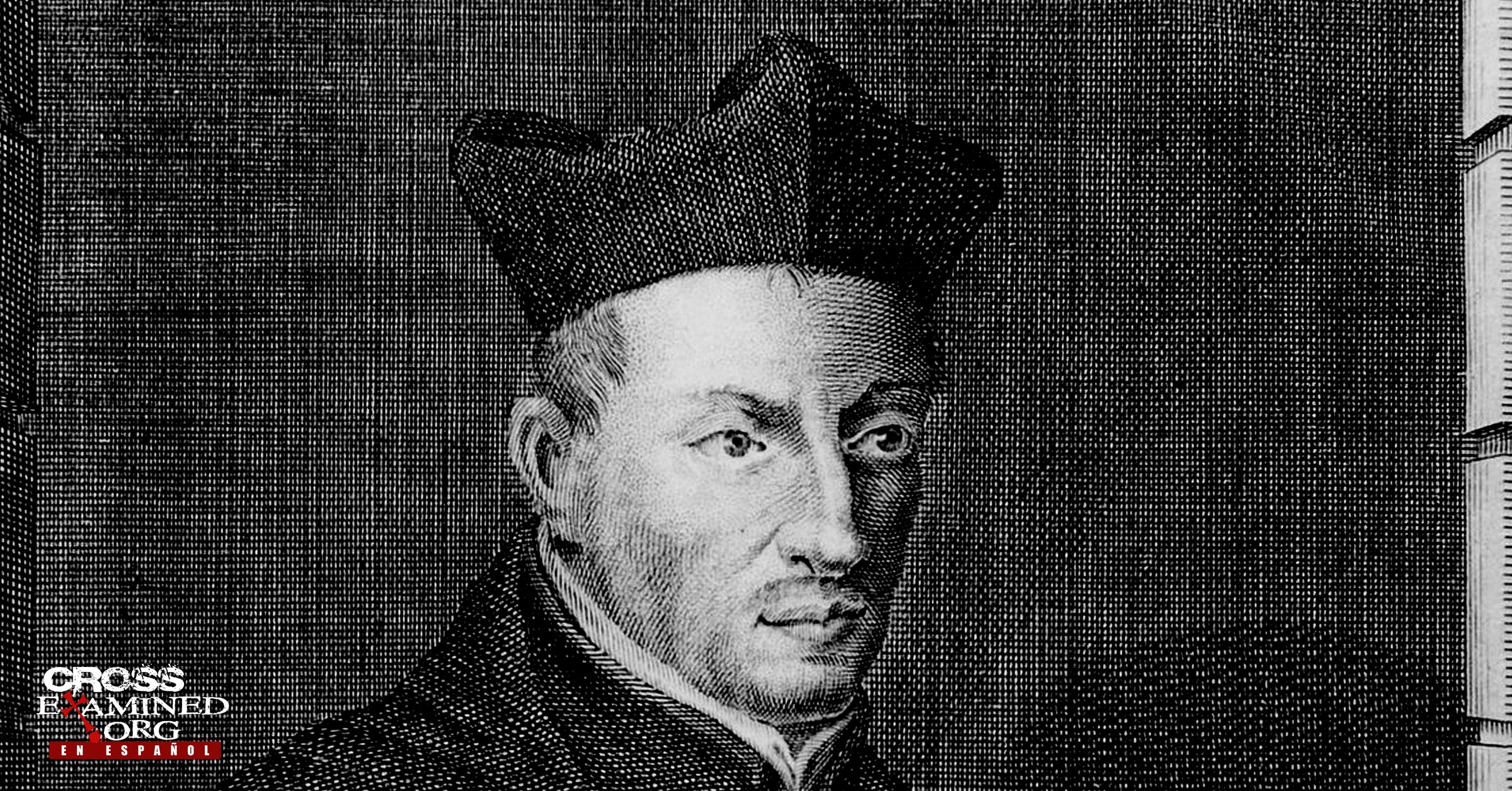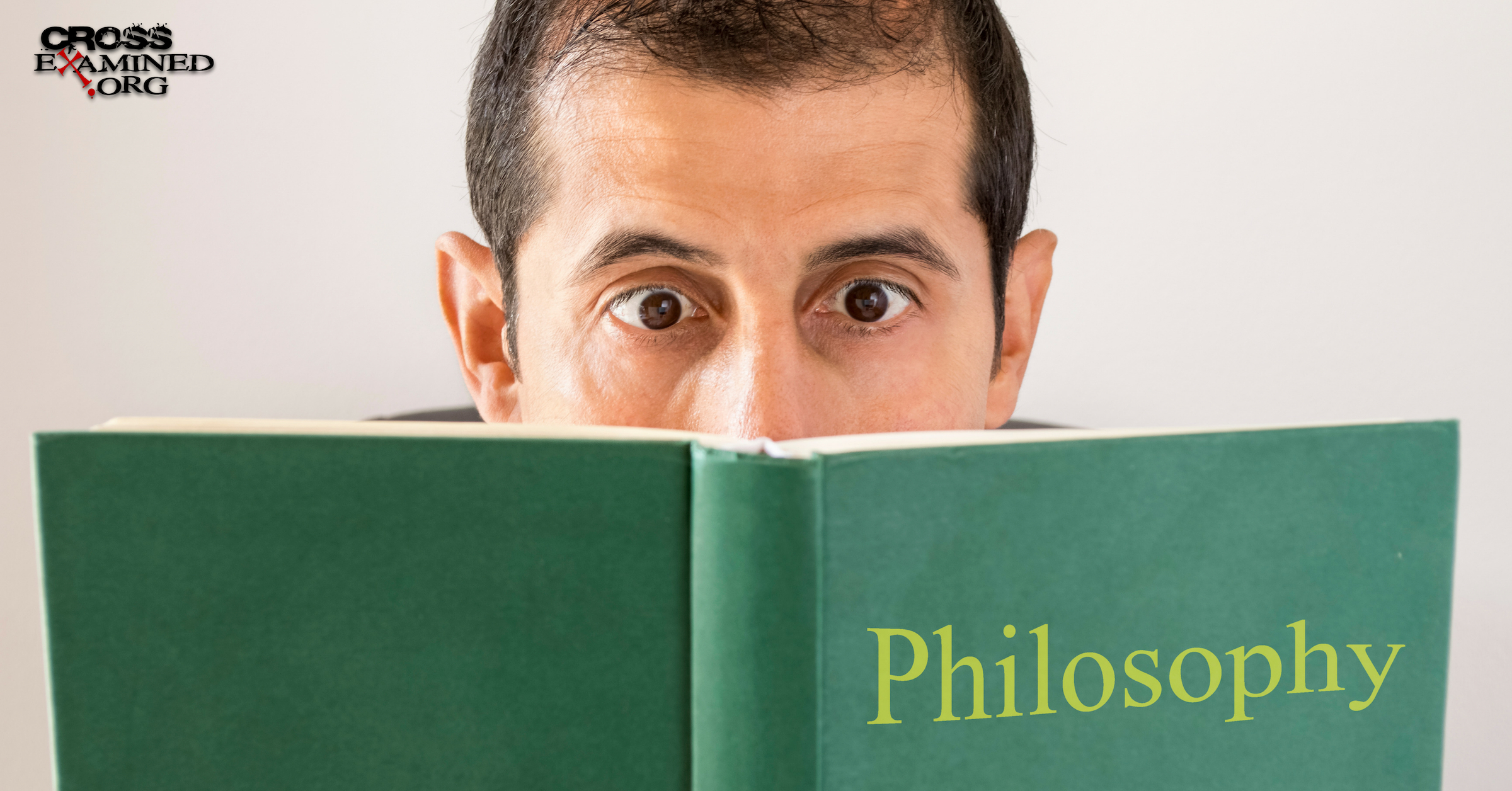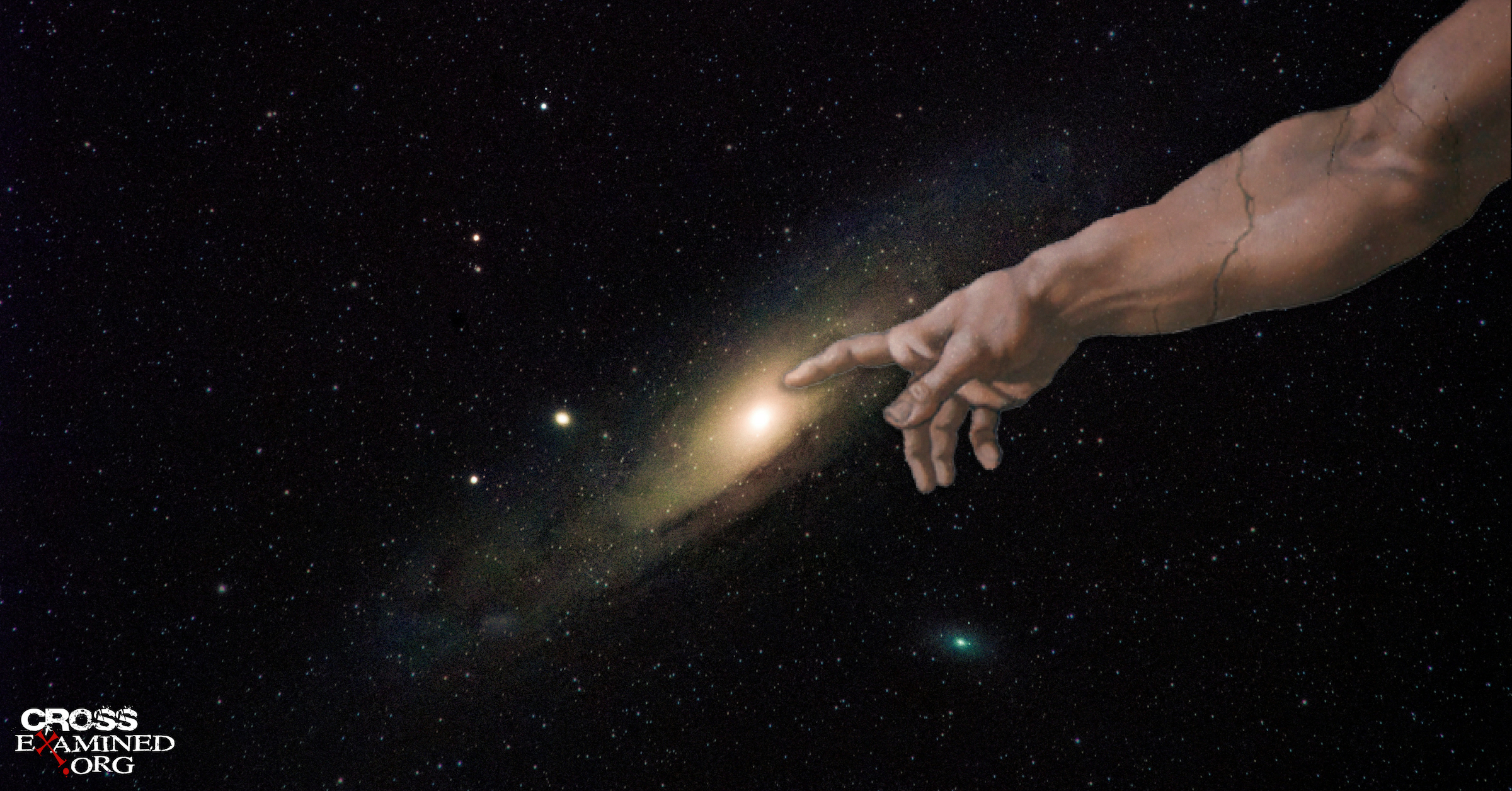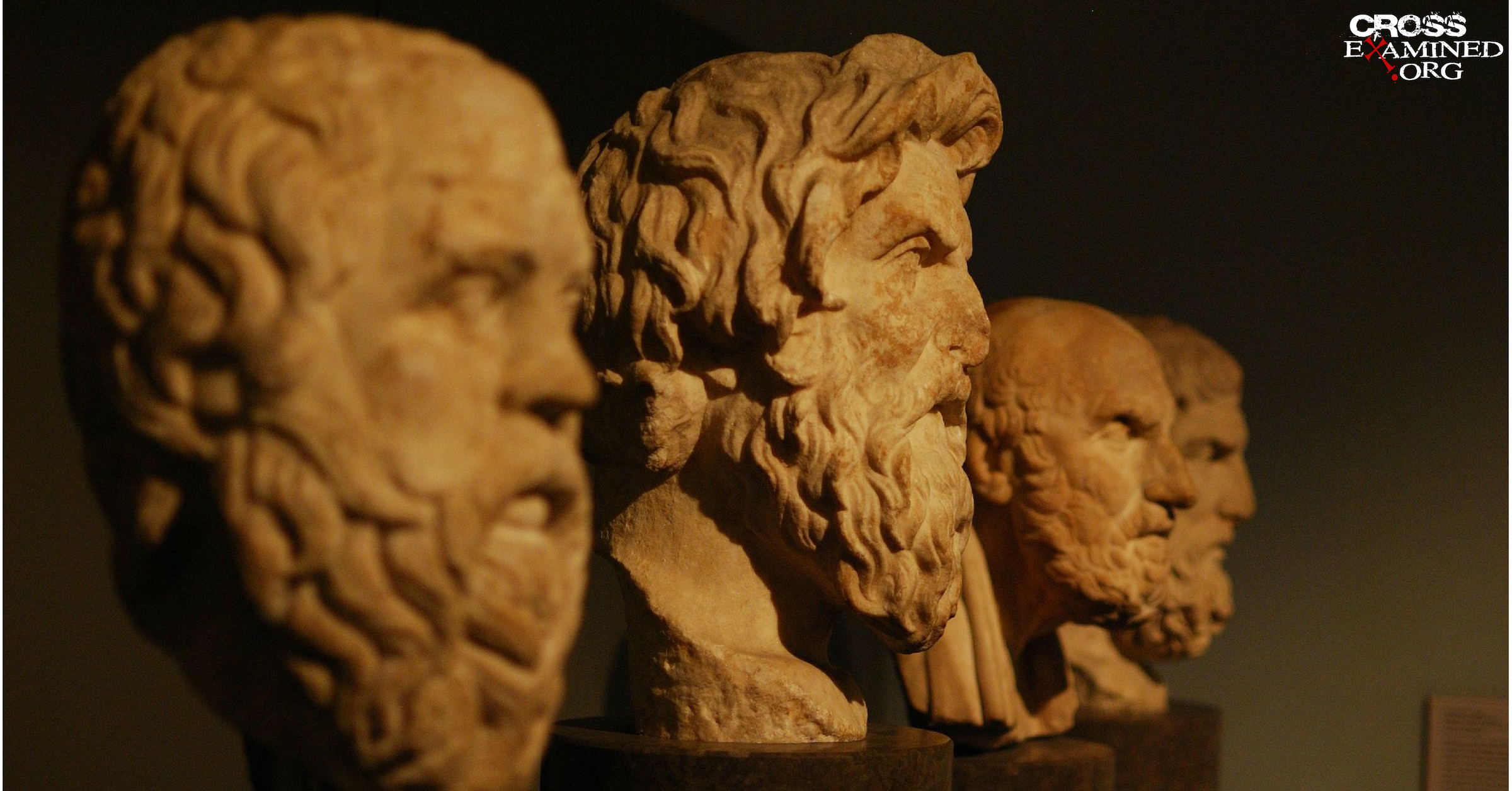Molinism is a view of soteriology. It has much in common with Arminianism. It teaches that God wants every human being to come to Christ in order to be saved (2 Peter 3:9; 1 Timothy 2:4), that Jesus died for every human being God has ever created or will create (John 3:16-18; 1 Timothy 2:6; 1 Timothy 4:10; 1 John 2:2; Hebrews 2:9), that human beings are totally depraved, that is, incapable of coming to Christ on their own, because Jesus said that no one can come to the Father unless the Father who sent Him draws them to Himself (John 6:44; John 6:65), and because of this inability to come to Christ in our own strength, God sends the Holy Spirit to convict the world of sin (John 16:8) and to draw every person into a relationship with Himself (John 12:32). Molinists also believe, like Arminians, that humanity has libertarian free will. Libertarian Free Will is different from compatibilism because it asserts that we are not causally determined to do what we do (there are no determining factors, although there are certain things that influence our decisions), and also that there is the possibility of doing the opposite. So if I choose A, I didn’t have to choose A. I could have chosen B. There was nothing to prevent me from holding back from choosing A and choosing B instead. Molinists believe that because of the enabling grace mentioned above, we have a choice to make. We can either receive salvation or reject it (Deuteronomy 30:15-19; Joshua 24:15).
Molinism differs from Arminianism in a small number of ways. This is a view called Middle Knowledge. What is Middle Knowledge? According to the Molinist, God has three kinds of knowledge. The first is God’s knowledge of necessary truths or natural knowledge. These are truths that are independent of God’s will and are non-contingent. This knowledge includes the full range of logical possibilities. Examples include statements like, “All bachelors are not married,” or “X cannot be A and not-A at the same time, in the same way, in the same place,” or “It is possible for X to happen,” or “It is impossible for squares to be triangular.” The second is called “Middle Knowledge” and contains the range of possible things that would have happened given certain circumstances, for example, “If Evan Minton chose to eat fish at this particular restaurant instead of a hamburger, he would get food poisoning and have a miserable weekend,” or “If Evan’s dog broke its leash and started chasing a squirrel, he would chase it.” The third type of knowledge is God’s free knowledge. This type of knowledge consists of contingent truths that are dependent on God’s will; that is, truths that God causes. Examples of this would include, “God became incarnate in the first century B.C.,” or “God created the universe.” This is knowledge that God possesses because he has chosen to cause it.
So according to the Molinist, God not only knows what will happen and what could happen, but He also knows what would happen. God literally knows everything there is to know about everything. He even knows the counterfactuals, (“If X happens, then Y would happen after it.”). This was beautifully illustrated in the Christmas movie It’s a Wonderful Life in which God shows George Bailey what the world would have been like without him. It’s a Wonderful Life shows God’s middle knowledge in that while God knew George Bailey was indeed going to be born when he was, He nevertheless knew what the world would have been like without him.
William Lane Craig calls Molinism “one of the most fruitful theological ideas ever conceived, for it would serve to explain not only God’s knowledge of the future but divine providence and predestination as well.” Under it, God retains a measure of divine providence without impeding human freedom. Since God possesses middle knowledge, He knows what an agent would freely do in a particular situation. So agent A, if placed in circumstances C, would freely choose option X over option Y. Therefore, if God wanted to bring about X, all God would do is, using His middle knowledge, actualize the world in which A was placed at C, and A would freely choose X. God retains an element of providence without nullifying A’s choice, and God’s purpose (the actualization of X) is accomplished.
This is a very profound insight into how God can accomplish His purposes without violating our free choices. God can get us to do what He wants us to do without causally determining us to do it.
I gave this explanation of what Molinism is again because there are many people who are not aware of it. Many Christians know about Arminianism and Calvinism, but Molinism seems to me to be the forgotten middle child of the soteriological family. Maybe that is not an accurate perception, but I think it is one I have because the name is not mentioned very commonly in debates about soteriology. It is usually presented as “Arminianism vs Calvinism” rather than “Arminianism, Molinism or Calvinism.” Maybe it is because Molinism is so similar to Arminianism that the two are mixed together. But in any case, even though I have already explained what Molinism is in a previous blog post, I wanted to do it again for those who are new to the perspective and/or have not read my previous post about it.
Anyway, since God can get us to do something freely by placing us in a set of circumstances, this presents a question.
Couldn’t God simply put everyone in circumstances where they would believe and be saved?
There is no single Molinist answer to this question. There are several. One answer is called Transworld Damnation, in which God saves all who would freely respond to his grace in any circumstance. The corollary of this is that all those lost would be lost no matter what set of circumstances God put them in or no matter what grace God provided. In Transworld Damnation, the answer is “no”—God could not have arranged things in such a way that everyone would end up saved, because some would freely not believe. I, however, find this view extraordinarily implausible. Do you expect me to believe that there is no circumstance, no world that God could actualize in which Christopher Hitchens would become a born-again Christian and be saved? Is there no circumstance in which God could put Caiaphas in which he would plead for Jesus and not Barabbas? Was Judas Iscariot destined for hell in any world that God actualized? I find this view to be stretching the boundaries of plausibility quite a bit. I mean, I suppose it’s possible that this is the case for some individuals . There are certain things that each of us would never do under any circumstances. But to say that this is the case for all the unsaved is a little hard to swallow.
Here is my perspective: Even though God desires all human beings to be saved and Jesus died for all, I do not think there is any world that God can actualize with as many people as this one has where every individual chooses to repent. It may well be the case that God cannot put every individual in just the right circumstances where God knows that if they were put in those circumstances, they would freely choose to repent and be saved. It may be impossible to produce every one of these circumstances in a single world. So while I believe that God desires that none should perish, it may not be possible to produce every circumstance in which God knows would stimulate a free response from all. It may even be the case that some circumstance in which one person is saved is a circumstance in which someone else is lost. For example, I read an article recently written by someone who said that it was through reading Richard Dawkins’ book The God Delusion that he decided to convert to the Christian faith. Why? It was because he said that the arguments against God and for atheism were so shoddy, so bad, that he concluded that atheism was indefensible. This prompted him to read works in favor of Christianity to see what they had to say about these issues, and that was enough to convince him that atheism is a sham. Now, what if this world is one in which Richard Dawkins became a Christian, say, at the age of 17? If that were the case, then he would never have written The God Delusion . And if that were the case, this person would never have read it and concluded that atheism is indefensible and that theism was a welcome alternative.
In this case, if Dawkins were saved, this other fellow might not have been. If this fellow were saved, it may be the case that this world is one where Dawkins is never saved.
So it could well be the case that no matter what world God chooses to create, there will be circumstances in which God knows that people will freely reject Him, while some will repent.
However, since we have libertarian free will, and our circumstances do not causally determine us to do what we do, no human being has any excuse for not repenting. All can be saved. People can act differently in the situations in which they are placed. God simply knows that they will not act differently. It is a would/would not situation and not a can/cannot situation. So no man can stand before God on the day of judgment and say, “If only you had put me in a particular situation, then I would have repented. But because you did not put me in that particular situation, I did not repent, and now here I stand before you condemned. So it is all your fault, God.” God will say, “No, you had the freedom to choose me or reject me. It was possible for you to do either no matter what situation I placed you in.” God gives prevenient and resistible grace to every individual (as Jesus said in John 12:32). This overcomes his inability to come to Him, mentioned by Jesus in John 6:44 and John 6:65, So even though there may be a possible world where Richard Dawkins is a born-again Christian, it is entirely possible for him to be [born again] in any world God actualizes, It is up to him whether he is or not.
In summary , I just said above that a) God wants all people to be saved; b) God has given man libertarian free will; c) even though God has put us in circumstances where He knows how we will act, there is a possibility to do otherwise. It’s not that I couldn’t reject Christ in the situation God put me in. It’s that God knew I wouldn’t; d) God gives prevenient and resistible grace to every human being so that their salvation would at least be possible; e) Whatever world God actualizes where man has free will in the libertarian sense, He cannot guarantee that every individual will accept Christ as their Savior.
Evan Minton is a Christian apologist and blogger at Cerebral Faith ( www.cerebralfaith.blogspot.com ). He is the author of “Inference To The One True God” and “A Hellacious Doctrine.” He has participated in several debates which can be viewed in the “My Debates” section of Cerebral Faith. Mr. Minton lives in South Carolina, USA.
[Original English blog not available]
Translated by Raul Jaramillo de Lira










